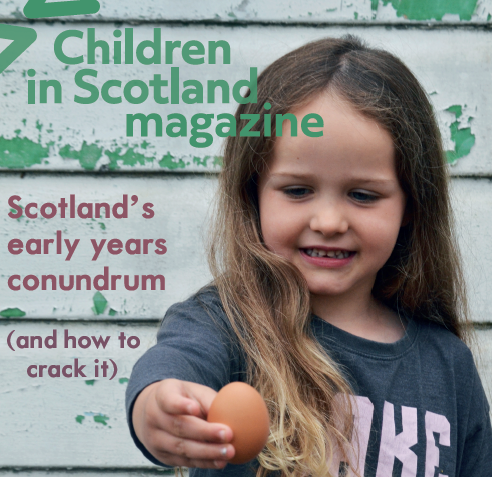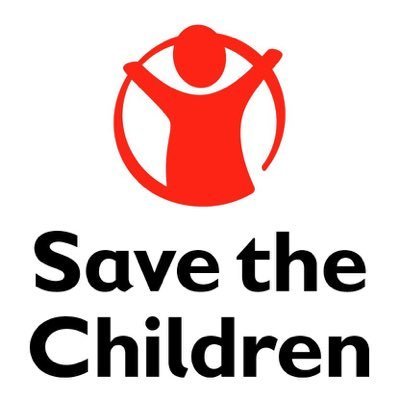Before and beyond
To eradicate the poverty-related attainment gap, we need to
do better at tackling inequalities beyond the classroom in
children’s earliest years, writes Claire Telfer
Ridding Scotland of the poverty-related attainment gap once and for all requires an approach that is balanced in favour of action ‘before and beyond the classroom’. The education system plays a key role, but it shouldn’t be shouldering the burden when the main drivers of the gap sit outside the classroom. Making progress requires a shift in gear and bold action. It means a relentless focus on reducing the number of children living in poverty and loosening the grasp poverty has on children’s learning and development in the early years.
The first few years of childhood are golden years when development is rapid, vast and holistic. It’s when little ones start to make sense of the world around them. From the moment they are born, children learn and develop in front of their families’ eyes. All parents want the best for their children but, without support, experiencing poverty in the early years can limit young children’s potential and entrench inequalities. The poverty-related gap in outcomes between children from poor families and their peers opens up well before they set foot in a classroom.
That’s why it’s encouraging to see that early delays in development between children living in poverty and their peers at 27-30 months have narrowed slightly in the last three years, from 15 per cent to 13 per cent. That said, a decade on from the ‘transformational change’ promised in the Scottish Government’s Early Years Framework, children from the most deprived areas are still more than twice as likely than those living in the least deprived areas to experience delays.
Progress appears fragile and slow – baby steps compared to the confident strides we need to make. And there’s a real danger that progress will come undone against a challenging backdrop of rising poverty. A third of families in Scotland where the youngest child is one or under are living in poverty. Without action, this is set to increase further.
There are no easy answers to this challenge. We will only succeed if our approach reflects intensified and sustained action on the drivers that allow differences in children’s learning and development to emerge. The Scottish Government has taken welcome steps to make Scotland the best country in the world to be born into, including investment in quality early learning and childcare; providing support to parents to engage in their children’s learning; and providing help with costs through the Baby Box and Best Start Grants. This support must be sustained, and every effort made to ensure these approaches are reaching and benefiting families living in poverty.
What happens at home through child and parent play has a huge impact on young children’s learning and development. Living on a low income can shrink the space and resources available for parents to support this. The parents we work with tell us they need and want help in identifying how they can best support their children’s early learning.
Government, services and communities need to work together to help unleash the power of parents and ensure they have the skills, tools, confidence and resources needed. We warmly welcome the inclusion of parental engagement as one of the six priorities for improvement in our education system. We need to ensure this priority is mirrored in family support for the youngest children.
We also must do more to address rising child poverty. Money matters, and finding ways to get more money into families’ pockets and reduce poverty is vital to closing the attainment gap. Struggling to make ends meet on a daily basis causes a great deal of stress and anxiety and leaves families with impossible choices about what essentials to spend money on.
Children living in poverty do less well than their better-off peers simply because they are poorer. This is true for cognitive and social-behavioural development and school achievement. Conversely, having more money can directly improve children’s development and achievement. Scotland has shown that progress can be made in reducing child poverty. But with that now in retreat, advances in tackling the attainment gap will be more difficult. As increasing numbers of children risk experiencing poverty in their first years, we must do more.
Attention will need to focus on ensuring families can earn enough to live free of poverty and reduce costs like housing and childcare. Scotland can now take action to protect families against poverty through new social security powers. We welcome the Scottish Government’s commitment to introduce an income supplement. This presents a huge opportunity to boost the incomes of families with young children. It should be seen as being as much a part of family and children’s policy as anti-poverty policy.
Tackling the poverty-related attainment gap is critical for sustaining low levels of child poverty. The Scottish Government should be applauded for setting an ambitious agenda to rid Scotland of these scars. But we need to do more to join the dots between plans for putting more money in families’ pockets and supporting children’s prospects, to prevent poverty and its impact on children from the earliest years. With political will and bold action, real progress can be made.
Claire Telfer is Head of Save the Children in Scotland
To read the full range of content in our early years issue, click here to buy a print copy or subscribe to the magazine for a year by contacting clogan@childreninscotland.org.uk

Children in Scotland Magazine
Find out more about the content in the latest issue of our magazine and how to subscribe
Read more